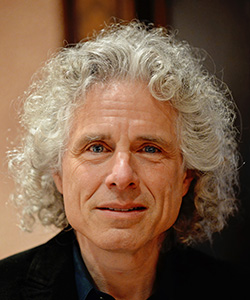-

Helping Healthy Habits Stick
A group of prominent psychological scientists outlines specific solutions to help individuals and policymakers maintain healthy habits.
-
SBST to Accept Fellowship Applications Through Jan. 24
The application deadline is approaching for fellowships with the new White House Social and Behavioral Sciences Team (SBST) created by President Obama. The SBST is seeking new team members for a 1-year fellowship in Washington, D.C. beginning in October 2016. Fellows must have substantial experience in a social or behavioral science field, including psychology, economics, statistics, and political science. Applications are due by 11:59 p.m. on Sunday, January 24. Information about the responsibilities and qualifications of Fellow and Associate Fellows, and details on how to apply are available at https://sbst.gov/apply.
-
Reproducibility Project Named Among Top Scientific Achievements of 2015
The journal Science has named a major attempt to replicate 100 papers published in top-tier psychology journals as one of the “breakthroughs of the year” for 2015. This collaborative project, facilitated by the Center for Open Science and APS Fellow Brian Nosek, has been recognized as a major scientific achievement by psychology but also by science as a whole. The results were sobering for the field -- less than half of results replicated -- but they also provided a valuable estimate of the replicability of psychology papers and are motivating new attempts to improve reproducibility. Science published the results of the project in August 2015.
-

Testing and Spacing Both Aid Memory
Research suggests that restudying material can be a useful learning strategy, especially if that restudying is spaced out in time.
-
Examining the Mechanics of Different Types of Choice
Have you ever noticed your attention gravitating toward the first or last item on a menu, or toward the centrally placed items on a grocery store shelf? Why does placement influence our choices and decisions? In a recent Perspectives on Psychological Science article, APS Fellow Maya Bar-Hillel (The Hebrew University of Jerusalem, Israel) tells the tale of how she came to better understand how position influences our choices and shares what she has learned about the circumstances under which people chose certain items. In the early 2000s, Bar-Hillel supervised a doctoral student who was examining how test takers answer multiple-choice questions.
-

Inside the Psychologist’s Studio: Steven Pinker
Steven Pinker is widely regarded as one of the world’s most influential scientific scholars. His work has spanned visual cognition, children’s language development, the neural bases of words and grammar, and the psychology of

